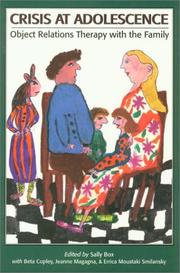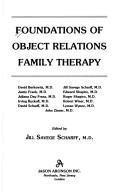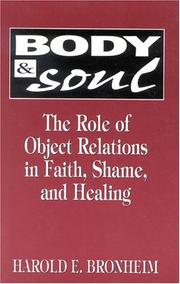| Listing 1 - 10 of 798 | << page >> |
Sort by
|
Book
Year: 2021 Publisher: London : UCL Press,
Abstract | Keywords | Export | Availability | Bookmark
 Loading...
Loading...Choose an application
- Reference Manager
- EndNote
- RefWorks (Direct export to RefWorks)
This is a philosophical work that develops a general theory of ontological objects and object-relations. It does this by examining concepts as acquired dispositions, and then focuses on perhaps the most important of these: the concept of learning. This concept is important because everything that we know and do in the world is predicated on a prior act of learning.A concept can have many meanings and can be used in a number of different ways, and this creates difficulty when considering the nature of objects and the relationships between them. To enable this, David Scott answers a series of questions about concepts in general and the concept of learning in particular. Some of these questions are: What is learning? What different meanings can be given to the notion of learning? How does the concept of learning relate to other concepts, such as innatism, development and progression?The book offers a counter-argument to empiricist conceptions of learning, to the propagation of simple messages about learning, knowledge, curriculum and assessment, and to the denial that values are central to understanding how we live. It argues that values permeate everything: our descriptions of the world, the attempts we make at creating better futures and our relations with other people.
Book
Year: 2021 Publisher: London : UCL Press,
Abstract | Keywords | Export | Availability | Bookmark
 Loading...
Loading...Choose an application
- Reference Manager
- EndNote
- RefWorks (Direct export to RefWorks)
This is a philosophical work that develops a general theory of ontological objects and object-relations. It does this by examining concepts as acquired dispositions, and then focuses on perhaps the most important of these: the concept of learning. This concept is important because everything that we know and do in the world is predicated on a prior act of learning.A concept can have many meanings and can be used in a number of different ways, and this creates difficulty when considering the nature of objects and the relationships between them. To enable this, David Scott answers a series of questions about concepts in general and the concept of learning in particular. Some of these questions are: What is learning? What different meanings can be given to the notion of learning? How does the concept of learning relate to other concepts, such as innatism, development and progression?The book offers a counter-argument to empiricist conceptions of learning, to the propagation of simple messages about learning, knowledge, curriculum and assessment, and to the denial that values are central to understanding how we live. It argues that values permeate everything: our descriptions of the world, the attempts we make at creating better futures and our relations with other people.
Book
Year: 2021 Publisher: London : UCL Press,
Abstract | Keywords | Export | Availability | Bookmark
 Loading...
Loading...Choose an application
- Reference Manager
- EndNote
- RefWorks (Direct export to RefWorks)
This is a philosophical work that develops a general theory of ontological objects and object-relations. It does this by examining concepts as acquired dispositions, and then focuses on perhaps the most important of these: the concept of learning. This concept is important because everything that we know and do in the world is predicated on a prior act of learning.A concept can have many meanings and can be used in a number of different ways, and this creates difficulty when considering the nature of objects and the relationships between them. To enable this, David Scott answers a series of questions about concepts in general and the concept of learning in particular. Some of these questions are: What is learning? What different meanings can be given to the notion of learning? How does the concept of learning relate to other concepts, such as innatism, development and progression?The book offers a counter-argument to empiricist conceptions of learning, to the propagation of simple messages about learning, knowledge, curriculum and assessment, and to the denial that values are central to understanding how we live. It argues that values permeate everything: our descriptions of the world, the attempts we make at creating better futures and our relations with other people.
Book
ISBN: 222700519X 9782227005198 Year: 1974 Publisher: Paris
Abstract | Keywords | Export | Availability | Bookmark
 Loading...
Loading...Choose an application
- Reference Manager
- EndNote
- RefWorks (Direct export to RefWorks)
Social psychology --- Adoption --- Object relations (Psychoanalysis) --- Object relations (Psychoanalysis).

ISBN: 0231061021 Year: 1990 Publisher: New York Oxford Columbia University Press
Abstract | Keywords | Export | Availability | Bookmark
 Loading...
Loading...Choose an application
- Reference Manager
- EndNote
- RefWorks (Direct export to RefWorks)

Abstract | Keywords | Export | Availability | Bookmark
 Loading...
Loading...Choose an application
- Reference Manager
- EndNote
- RefWorks (Direct export to RefWorks)
Book
ISBN: 0876689969 Year: 1991 Publisher: Northvale Aronson
Abstract | Keywords | Export | Availability | Bookmark
 Loading...
Loading...Choose an application
- Reference Manager
- EndNote
- RefWorks (Direct export to RefWorks)
Book
ISBN: 0429915098 0429900864 0429476094 1283068451 9786613068453 1849402574 Year: 1998 Publisher: London : Karnac,
Abstract | Keywords | Export | Availability | Bookmark
 Loading...
Loading...Choose an application
- Reference Manager
- EndNote
- RefWorks (Direct export to RefWorks)
The authors show how their ego-psychological object relations theory integrates drive theory and object relations theory and does justice to recent findings regarding the vicissitudes of transference and countertransference interactions in the psychoanalytic situation. 'A significant shift has taken place in the last few decades in the way in which psychoanalytic theory has developed and in its application to psychoanalytic technique. This development has, in essence, consisted in the ascendance of object relations theory as an overall integrating frame of reference linking psychoanalytic metapsychology closer to the vicissitudes of the psychoanalytic process. This has facilitated the formulation of unconscious intrapsychic conflict in more clinically helpful ways than has the traditional frame of reference exclusively based on the conflict between drives and defensive operations. 'The great interest of the Sandler's approach resides in their careful and systematic elaboration of what might be called the various "building blocks" of a contemporary ego psychological object relations theory, carefully exploring each areas on its own merits before gradually taking them into an overall theoretical approach.
Object relations (Psychoanalysis) --- Motivation (Psychology)

ISBN: 0876689462 Year: 1991 Publisher: Northvale Aronson
Abstract | Keywords | Export | Availability | Bookmark
 Loading...
Loading...Choose an application
- Reference Manager
- EndNote
- RefWorks (Direct export to RefWorks)

ISBN: 0765701626 Year: 1998 Publisher: Northvale Aronson
Abstract | Keywords | Export | Availability | Bookmark
 Loading...
Loading...Choose an application
- Reference Manager
- EndNote
- RefWorks (Direct export to RefWorks)
| Listing 1 - 10 of 798 | << page >> |
Sort by
|

 Search
Search Feedback
Feedback About UniCat
About UniCat  Help
Help News
News